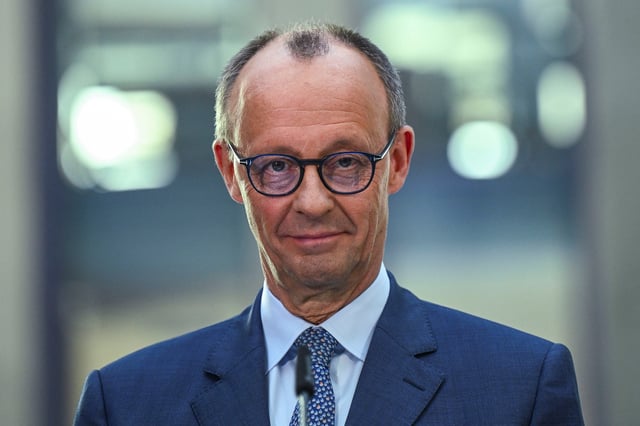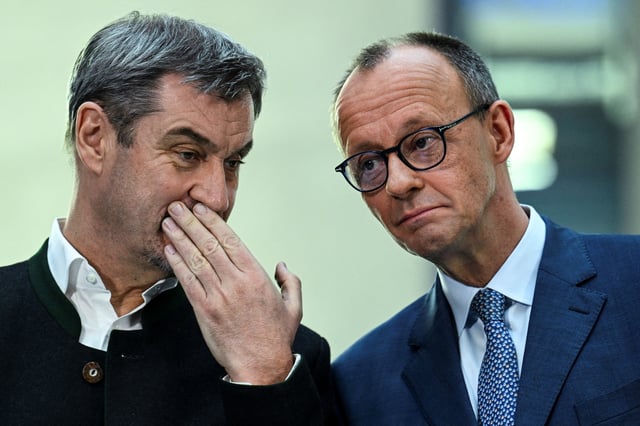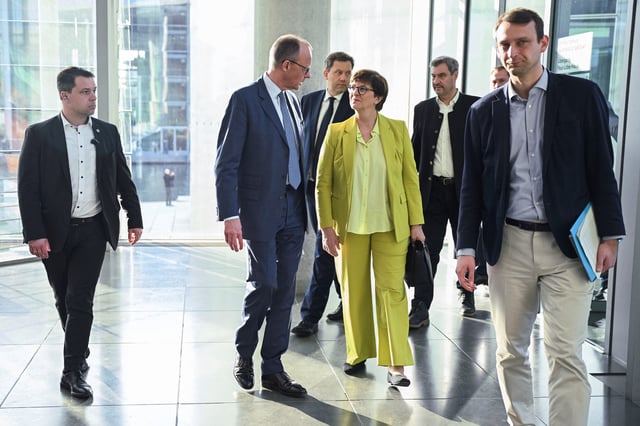Overview
- Friedrich Merz's CDU/CSU bloc and the SPD have completed exploratory talks, clearing the way for formal coalition negotiations.
- The proposed coalition plans include significant economic and defense investments, potentially bypassing Germany's debt brake to fund growth and military rebuilding.
- Key policy agreements include stricter measures on irregular immigration, a 15-euro minimum wage, and stable pensions.
- The coalition aims to finalize negotiations by mid-April, ending months of political deadlock following the collapse of Olaf Scholz's three-way government.
- The ambitious spending plans respond to shifting transatlantic relations under U.S. President Trump and aim to bolster Germany's economic and security role in Europe.



